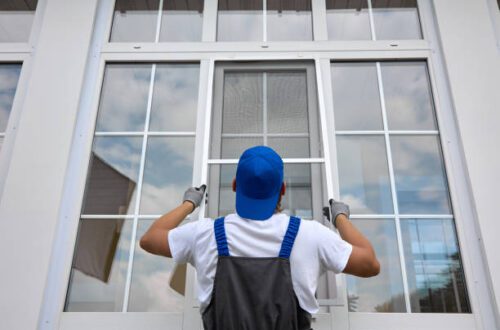There’s a lot more to being a good cook than simply following online recipes. Of course, you’ll also pick up tips and tricks along the way that improve your skills. However, it doesn’t matter how delicious the food you prepare is if you can’t do it safely.
When you’re cooking or baking, kitchen safety should be your top priority. Otherwise, you could suffer from a myriad of injuries. Furthermore, poor kitchen safety standards could also lead to members of your family (or anyone else who eats your food) getting sick.
We don’t want to see that happen. Keep reading for our top dos and don’ts for staying safe in the kitchen.
1. Do Learn How to Extinguish Grease Fires
Kitchen fire safety is vital for any type of food preparation. You need to have a fire extinguisher on hand at all times, just in case.
However, you also need to learn how to extinguish a grease fire. The easiest method is to smoother it with baking soda. DO NOT use water.
2. Do Wear the Proper Attire While Cooking and Baking
One of the simplest kitchen safety tips is to wear appropriate clothing and attire. This includes non-slip shoes and an apron.
Additionally, know when to don oven mitts to avoid burning your hands. Finally, make sure long hair is tied back and you’re not letting loose clothing or jewelry dangle.
3. Do Learn Proper Knife Techniques
Knives are necessary for most baking and cooking projects. It’s essential that you learn kitchen knife safety. This is important for keeping you and others safe.
Learn how to handle chef knives safely, including washing and storage.
4. Do Sift, Stir, and Lift Safely
When stirring, lifting, or sifting items in a hot pan or pot, always do so away from yourself. The last thing you want to do is splash hot liquid on your skin. It’s also a good idea to be mindful of other people around you.
5. Don’t Forget to Turn Off Appliances
One of the biggest causes of kitchen fires is forgetting to turn off heat-based appliances. Before leaving the kitchen, double-check that the oven, burners, and all other appliances are turned off or are unplugged.
Fire damage to a kitchen can significantly decrease your home’s value. Getting an inspection from Wild Blue Home Inspections after an accident can help you understand the damages and how they affect your home’s value.
6. Don’t Place Metal Items in the Microwave
One of the most important kitchen safety rules is to keep all metal utensils and cookware out of the microwave. Metal in a microwave can create sparks and eventually lead to a fire. This includes dishes embedded with metal decor.
7. Don’t Contaminate Other Food With Raw Meat
As noted above, kitchen safety means keeping people from getting sick. When preparing meals that require meat, make sure you clean any surfaces that come into contact with raw meat. Failing to do so could result in the transfer of harmful bacteria into other foods.
8. Don’t Ruin Your Non-Stick Pans With Metal Utensils
Finally, remember to use only plastic, rubber, or wooden kitchen utensils in pots and pans coated with a non-stick surface. Metal utensils will scratch, chip, and damage the coating. This could lead to flecks of the coating being mixed in with food and accidentally consumed.
Looking for More on Kitchen Safety and Other Home Advice?
If you want to create and maintain a safe and healthy home environment, kitchen safety is a must. Follow the dos and don’ts listed above to maximize your safety practices while cooking and baking.
And feel free to check out some of our other articles before you go. Our blog was created for women just like you looking to improve their homes, finances, and careers.






